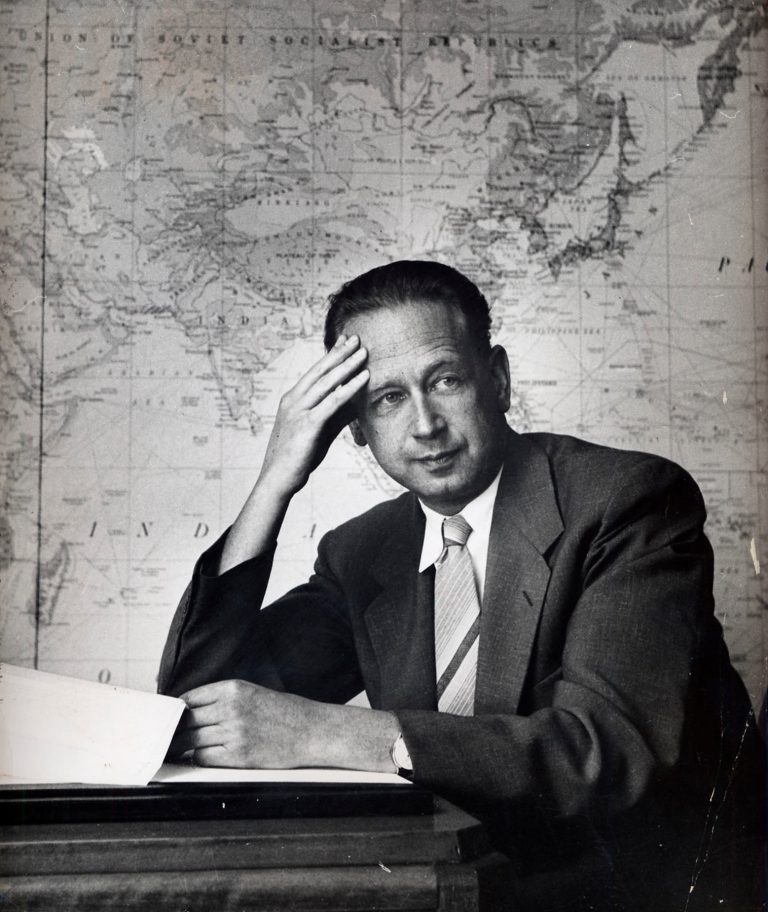
Hammarskjöld
The person, destiny, and legacy of Dag Hammarskjöld exercise perennial fascination. Interest has been nurtured in recent years by works of enquiry. Roger Lipsey’s Dag Hammarskjöld: A Life from 2015 is recognised as a watershed in scholarship. In a different register, Mads Brügger’s investigative film Cold Case Hammarskjöld (2019) opened the Pandora’s Box, hung with multiple locks, of the 1961 plane crash in which Hammarskjöld died. It signals conspiracy theories the viewer (left, as Ann Hornaday wrote, feeling ‘shockingly uncomfortable’) wishes were less persuasive. Last week Per Fly’s epic Hammarskjöld was launched in the Norwegian cinema. It raises questions – not least regarding the legitimacy of inventing a key character supposed to embody a tendency in Hammarskjöld’s life. Nonetheless, the film impressed me. I found the portrayal credible. One is left with much to think about that is of relevance. Faced with today’s array of global emergencies, one wishes one could look towards the UN as an objective arbiter fit to be an agent of peace only to discern, again and again, complexes of partial interest. The thought of Hammarskjöld prompts the question: Where on the international political scene do we now find voices worthy of our trust?
